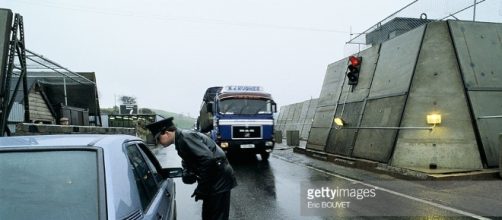On 23rd June 2016, 51.9% of British voters opted to leave the European Union. However, in northern ireland almost 56% voted to remain in the union, prompting worries in the country that Brexitnegotiations would be wholly negative for them. Indeed, Northern Irish farmers are heavily dependent on EU funds, which make up 80% of their income, as well as access to the European market, and the Northern Ireland economy did decline in the month after Brexit, albeit less so than the UK average. EU money has also served as a major source of funding for peace-building in Northern Ireland, prompting concerns about a deterioration of the Good Friday Agreement, signed in 1998, which brought an end to The Troubles which claimed thousands of lives.
Joint concern over Brexit
In a joint letter to Theresa May, Northern Ireland First Minister Arlene Foster of the DUP, and Deputy First Minister Martin McGuiness of Sinn Féin, stated their concerns over Brexit. They demanded that Northern Ireland maintain a porous border with the south and also some form of free movement of labour with the EU as a whole. They also warned that Brexit must not undermine the fight again cross-border crime. However, Foster was the only leader of a main Northern Ireland party to back ‘Leave’, and she continues to adamantly deny making a U-turn on Brexit. This comes as the Chancellor of the Exchequer Phillip Hammond pledges that EU structural and investment projects in Northern Ireland that were signed off before the previous Chancellor’s Autumn Statement will be funded after Brexit, and that EU payments to farmers will be upheld.
Nevertheless, Northern Ireland Finance Minister Máirtin Ó Muilleoir has insisted that this has not gone far enough, and will only help some of those dependent on EU membership.
The illegality of leaving
Northern Ireland is the only part of the UK with a land border shared with an EU member state, leading to concerns over the re-implementation of a hard border between Northern Ireland and the south.
However, Charlie Flanagan, the Irish Foreign and Trade Minister has said that a ‘heavily fortified’ border would not work, and the Taoiseach has also stated that there will be not return to a hard border. However, any sort of controls or checks between the North and the South, which would undoubtedly be introduced, risk a deterioration of the relationship between the two countries.
This comes as the number of people in Northern Ireland applying for an Irish passport has risen by more than 60% in July, compared to the same period last year, with the number of applications by the British people as a whole rising by more than 70%. But perhaps the most poignant story is that of Raymond McCord, a human rights activist in Northern Ireland, who has recently mounted a legal challenge against any British attempt to leave the EU. He claims that this would be in breach of the Good Friday Agreement, and therefore Britain’s domestic and international treaty obligations, meaning that it would be illegal for Britain to leave the EU without a parliamentary vote in the House of Commons. Similar cases questioning the legality of Brexit have also been filed.

